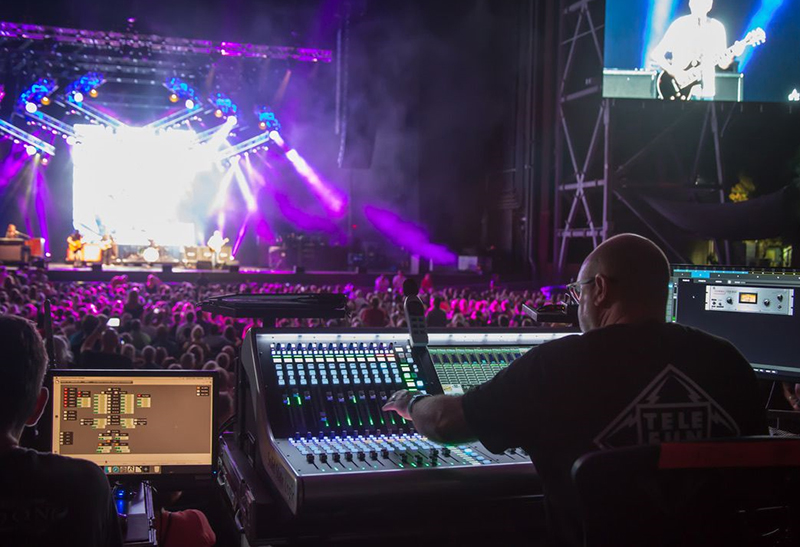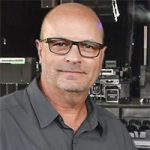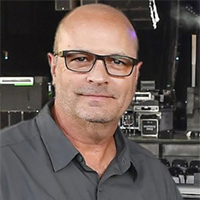To the naked eye, the front of house mix engineer may appear to be all alone out there surrounded by hundreds or thousands of screaming fans, but that’s rarely the case. His (or her) right-hand man (or woman) is more than likely right there making sure the mix engineer has the best rocket ship to pilot for the evening’s show.
If you could watch a time-lapse video of the audio crew setting up the rig from load in until sound check, you’d see there are many technicians who play a part in getting the sound system ready for the FOH engineer. And certainly, the one who has it on their shoulders to put a great sounding PA together each day is the system engineer (or tech, as it’s also called).
It’s a role that’s multi-faceted, to say the least. On show day, the system tech arrives first, measures the venue for distances and angles to best determine how the sound system can cover the audience in the most efficient way, and then dives in with the audio team to load it in and piece it all together. Once it’s safely up, secured and trimmed, a thorough test of all the components is next, followed by measuring and tuning the system (with or without the assistance of the FOH engineer). And this is all before lunch!
But let’s rewind even further. Before the system goes into the truck at the sound company’s shop for the first time, important decisions have to be made regarding its overall size and the different components that will be needed to cover every seat at every venue on the tour. This cooperative selection process is most often made by the FOH engineer, the sound company and system engineer.
Once the gear is picked and prepped, the FOH and monitor engineers will arrive at the sound company and spend a couple days making final preparations and tweaks. From there it all goes to band rehearsals and finally off to the first show. By this point, the FOH engineer and system engineer have more than likely discussed “game day” strategies regarding PA placement (including sub bass configurations) and personal preferences in the “testing and tuning flow” so things move along at a good pace and the best results are achieved.
Daily system placement, optimization and tuning strategies are very important processes that require a single-minded approach from the FOH mixer and system engineer. Rigging challenges and odd venue designs will at times cause issues that can throw a wrench into a well-planned day, but I find discussing these obstacles first thing in the morning usually helps in reaching a compromise that works for everyone.
Learning that all the subwoofers have to go on the ground because of weight restrictions in the roof is not the best way to wake up, but having trust that your system engineer fought the good fight to install the PA the way you like it, but had to bend a bit to keep things safe, makes it easier to take. The relationship has to be built on trust with aligned outcome goals, and if it is, the time spent together on the tour will be pleasant and fulfilling.
Sharing The Load
When it comes to measuring and tuning the PA, I’ve seen many different approaches regarding “who does what.” I’m a very hands-on mix engineer and I really enjoy this part of the process. I prefer to choose the measurement mic locations and make most of the (Rational Acoustics) Smaart measurements, storing traces as I capture them. It helps me to understand the venue we’re in and get a feel for what I may be up against regarding reverberation and early reflection anomalies.
Having said that, I tend to “hand off” the fringe PA zone decisions to my system engineer – especially during sound check and the show. Once I’m firmly tethered to my console it’s totally cool if the system engineer (who I trust implicitly) wanders the venue with a tablet computer and touches up level and EQ for the zones I can’t hear at the mix position.

Out fills, front fills and lawn systems in amphitheaters are all far enough away that I haven’t a clue what they’re doing with an audience in and the atmospheric conditions changing, so it’s refreshing to pass the torch to the system engineer to check all those areas and adjust if needed in the heat of battle. I only ask that adjustments made to these fill zones don’t impact the FOH mix position in a negative way.
Low and low-mid frequencies coming off the back of lawn systems are a good example of this. If the lawn system is sounding a bit wimpy and the system engineer beefs it up by adding some EQ, the result can often muddy things up under the roof and near FOH, so I always note if things seemed to change for the worse (at the mix position) while the system engineer was out making the rest of the room sound better. There’s often a good deal of dialog between us during the show, and we almost always manage to get things wrangled in before too long.
Getting Connected
The second relationship I’d like to look at is the interaction between a house audio tech and visiting FOH engineers. This 24-hour connection happens a lot more frequently in our business than the touring partnership, and has the potential to be more dynamic, in that it most often goes really well, but can sometimes take an unfortunate turn for the worst.
When I’m on tour traveling with my own FOH console along with mics stands and snakes, but not carrying a sound system, I rely daily on interfacing with the house PA and the personnel behind it to have a successful show. Or I sometimes rely 100 percent on the house audio system, including mixing on installed or cross-rented consoles.
In either case, this relationship usually starts with an email or a phone call to advance my audio needs, and to learn what I can about the house PA and venue’s pros and cons. I’m a fan of first sending an introductory email with a list of questions in hopes of receiving a detailed response from the house audio or production people.















